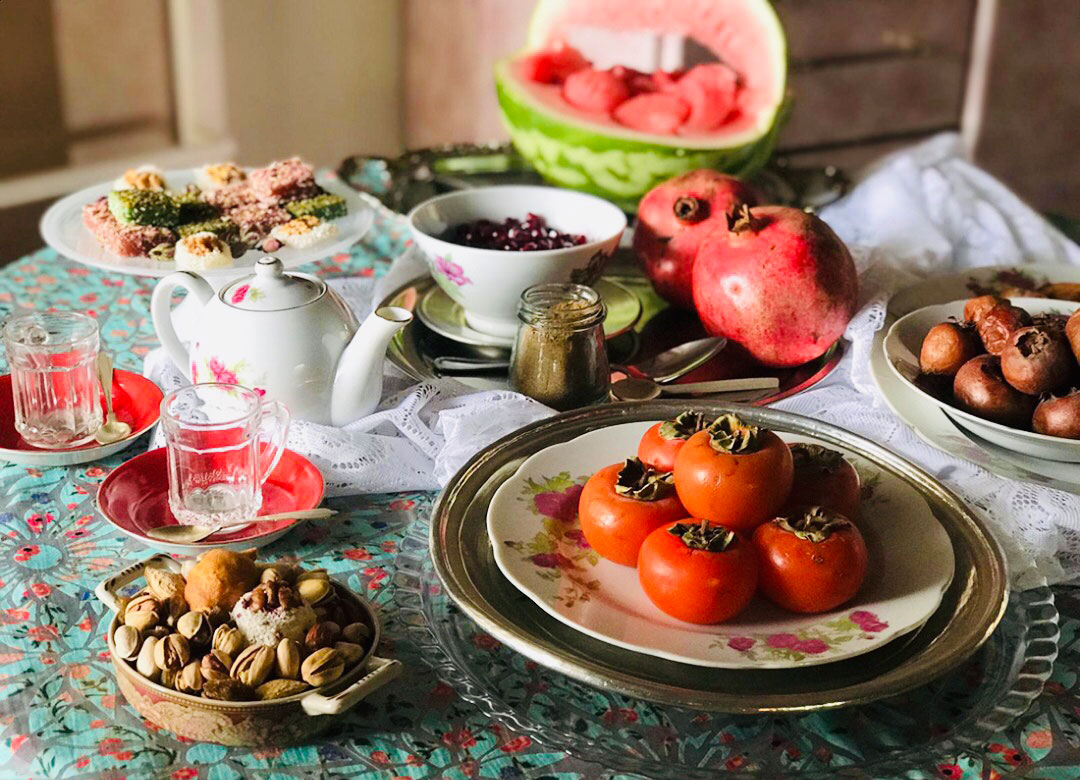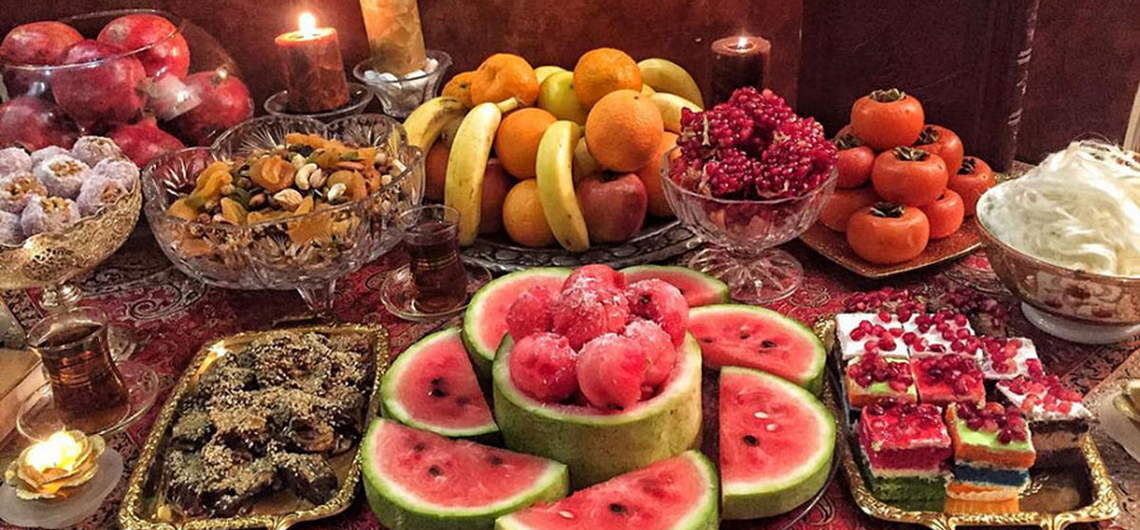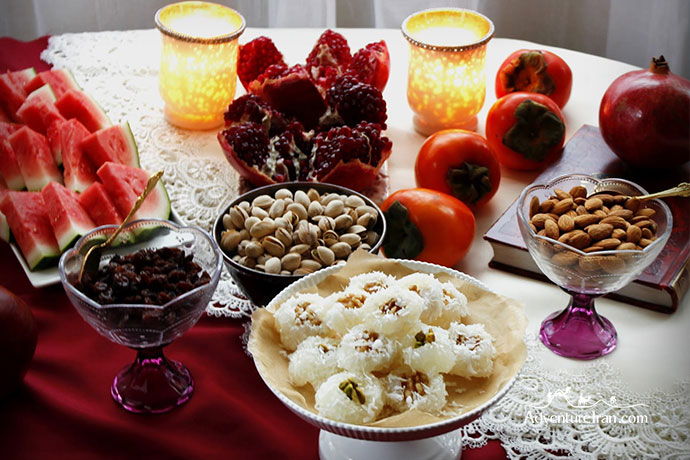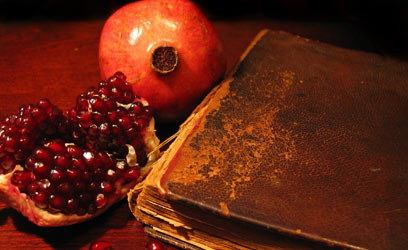Yalda Night
Yalda is the traditional Iranian celebration of the winter solstice – the longest night of the year. Observed widely throughout Iran’s history stretching back into pre-Zoroastrian times, Yalda Night evolved into a treasured festival bringing the family together and continues to be practiced by Iranians around the world. The ritual symbolizes the rebirth of light following the darkest night, and mythologically speaking, represents a critical moment in the eternal battle of Ahuramazada (light/ virtue/ existence) over Ahriman (dark/ evil/ nonexistence).

A table full of Yalda Treats
On this cosmically important night, family members gather together in the home of the family elder (typically grandparents, parents, or great aunts and uncles) to share sweets, red fruits (including pomegranate, watermelon, and persimmon), and a mix of candied and roasted nuts. Sometimes, Persian herbed rice with fish is steamed for dinner. In the old days, fruits were set on a korsi – a low table with a heating source underneath – and the family would huddle under a thick blanket to munch on treats and tell stories. The use of the korsi diminished as modern heating systems became common in Iranian homes, but the feeling of togetherness survives in various forms. Some choose to eschew the traditional ceremony and instead gather with close friends for a music-fueled dance party.
Whatever the feast, the one ever-present element is the cherished poetry of Hafez, the 14th-century Iranian poet, and mystic, whose words, even 700 years later, are still revered as a kind of oracle by all generations. Similar to fortune-telling with a side of mysticism, each family member puts their hand on the edge of the book, closes their eyes as they make a wish, and opens up a random page. Every family has a dedicated reader, who interprets the selected poem to suit the details of the wisher’s life. It is always fun to think about what fortune means, and some people believe in them!
This most special night of the year brings much anticipation. People run in the streets shopping in preparation, chat with one another about the guests they are expecting, and compare plans for how they are going to set their tables. It is a night to be happy and reflective and to enjoy being alive with those nearest and dearest to you.





Comments